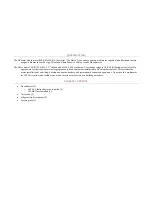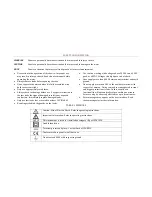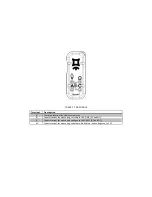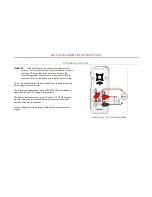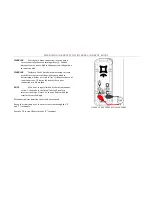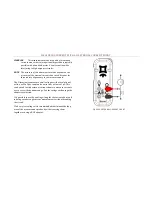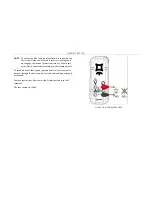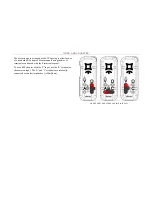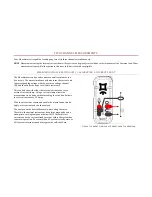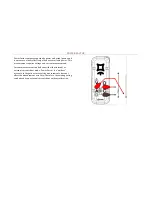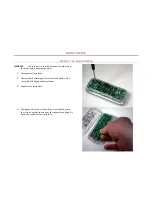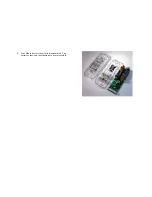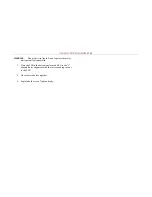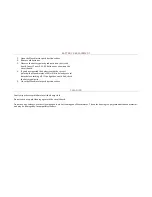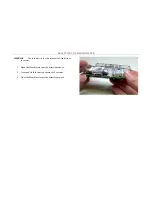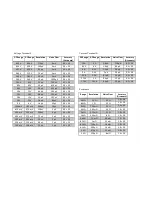
MEASURING CURRENT WITH INTERNAL CURRENT SHUNT
WARNING
Exercise care when connecting in series with a
circuit, especially those containing motor(s). Sudden
disconnects may create higher than expected voltages due
to inductive kick.
WARNING
Perform a Fuse Check before measuring currents
with the internal current shunt. Exercise caution in
determining whether a circuit is “live” if the meter does not
report a current. This may indicate either a poor
connection or a blown fuse.
NOTE
AC current range is limited by the instantaneous
current. Peaks above the listed limits will result in
incorrect readings. Derate AC current limits with high
crest factors accordingly.
Disconnect power from the circuit to be measured.
Break the circuit and wire the meter in series through the “A”
and “C” terminals.
Positive DC current flows into the “A” terminal.
FIGURE 2 BASIC CURRENT MEASUREMENT


